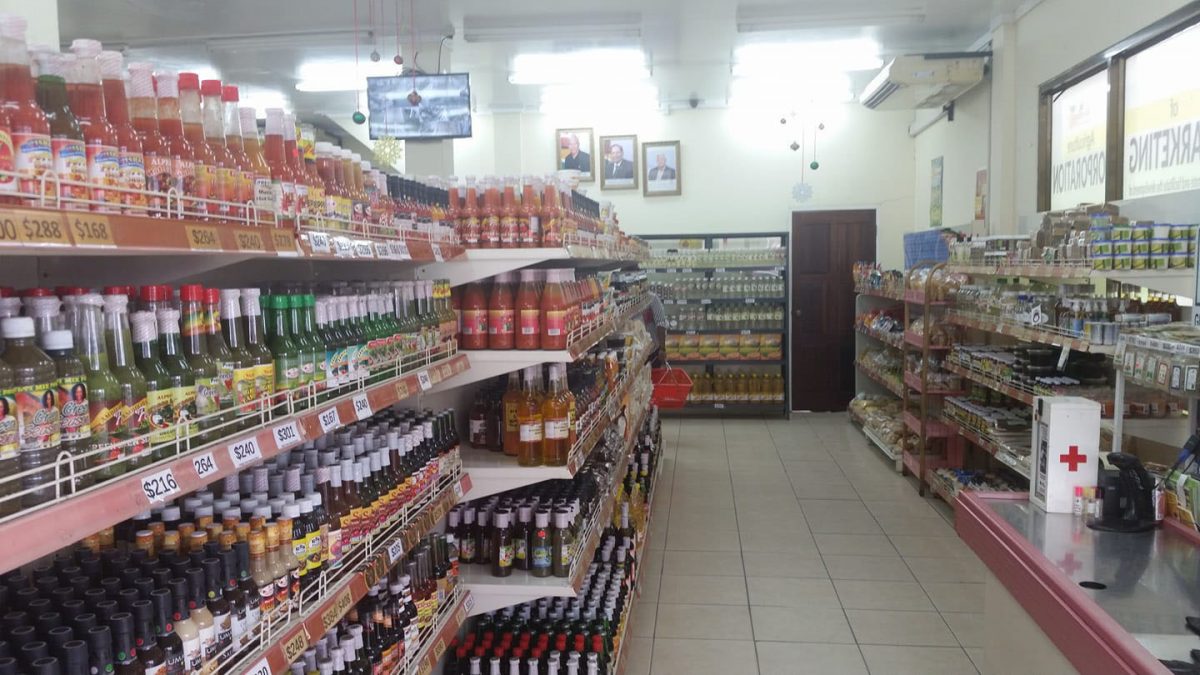Over the seven years of its existence the Guyana Shop has, perhaps surprisingly, positioned itself as arguably, the foremost promoter of the nation’s agricultural sector, not least, the spinoffs that derive from the agro- processing sub sector.
The first point that should perhaps be made about the Guyana Shop is that the official resource outlay on the establishment is decidedly modest in comparison to the array of services that it offers. These services range from local product promotion initiatives through the shelves of its modest ‘supermarket’ to standards testing by setting a qualifying bar in the areas of packaging and labelling. A measure of support is also offered to our fast-emerging band of diligent and determined agro-processors seeking to have their brands embraced by the regional market.
The work of the Guyana Shop in affording shelf space to a range of local products ranging from tamarind balls to tomato ketchup contrasts sharply with what still remains to be the seeming reluctance of some of our local food outlets to make concessions for the ‘buy local’ message that we seek to project; and however much the urgings of this newspaper may be discomfiting in some quarters, we will continue to insist that Trinidad & Tobago, in particular, be encouraged to remedy its one-sided ways insofar as its importation of every item of food and drink ranging from beverages and beer to attractively packaged biscuits and cookies into this country is concerned, as against its unmistakable determination to keep our own products out of that country.
In this regard we are utilising the opportunity, not for the first time, to call on our local Business Support Organisations to depart from their inward-looking ways and to associate themselves with what is still a weak lobby to break the shackles of protectionism that stand as a barrier between many of the same goods that ‘make’ the shelves of the Guyana Shop and a protectionist Trinidad and Tobago market. We wish, as well, to urge a hastening of the pace of the ongoing diplomatic dialogue between Georgetown and Port of Spain on the issue which, as we understand it, is designed to roll back the twin-island Republic’s protectionist ways. The same, it has to be said, applies to some local outlets that stock only a very limited number of local products compared with foreign goods.
As this newspaper understands it, official policy seeks to maximise the ‘buy local’ message in the agro- processing and other sectors and we believe therefore, that the Guyana Shop can play a far more dynamic role than it does at this time. Frankly, there is a strong argument for making the Guyana Shop a critical point of focus for the agro-processing industry that goes even further than it does at this time. There is, (we believe), the opportunity for working through the existing establishment to create franchises elsewhere in the region and in North America, perhaps managed by Guyanese in the diaspora, to act as centres through which our local products can be promoted. If it is true that such an initiative will face challenges associated with external food safety and import regulations, such an initiative can perhaps help to drive the enhancement of the services provided by the Government Analyst-Food and Drugs Department. We believe, as well, that the opening up of such opportunities as might be afforded by external franchises can serve as a strong incentive for local agro- processors to ‘raise their game.’
While much continues to be said at both the public and private sector levels about the economic prospects that repose in the country’s oil and gas pursuits, there appears to be a national consensus that it would be foolhardy to now ‘bite the hand’ that has provided for us so bountifully over many years. The case for agriculture and agro-processing, we believe, continues to be as valid as it ever was, and arguably, even more valid today.
The Guyana Shop itself is a pleasing symbol of what agro-processing continues to do to change the lives of many ordinary Guyanese. Contextually, we believe that it has made a case for having more resources channelled its way. A Guyana Shop should adequately mirror the extent of the multi-faceted contribution which agriculture and agro-processing make to Guyana. Accordingly, it has, during its seven years of existence, more than made a case for its expansion.









